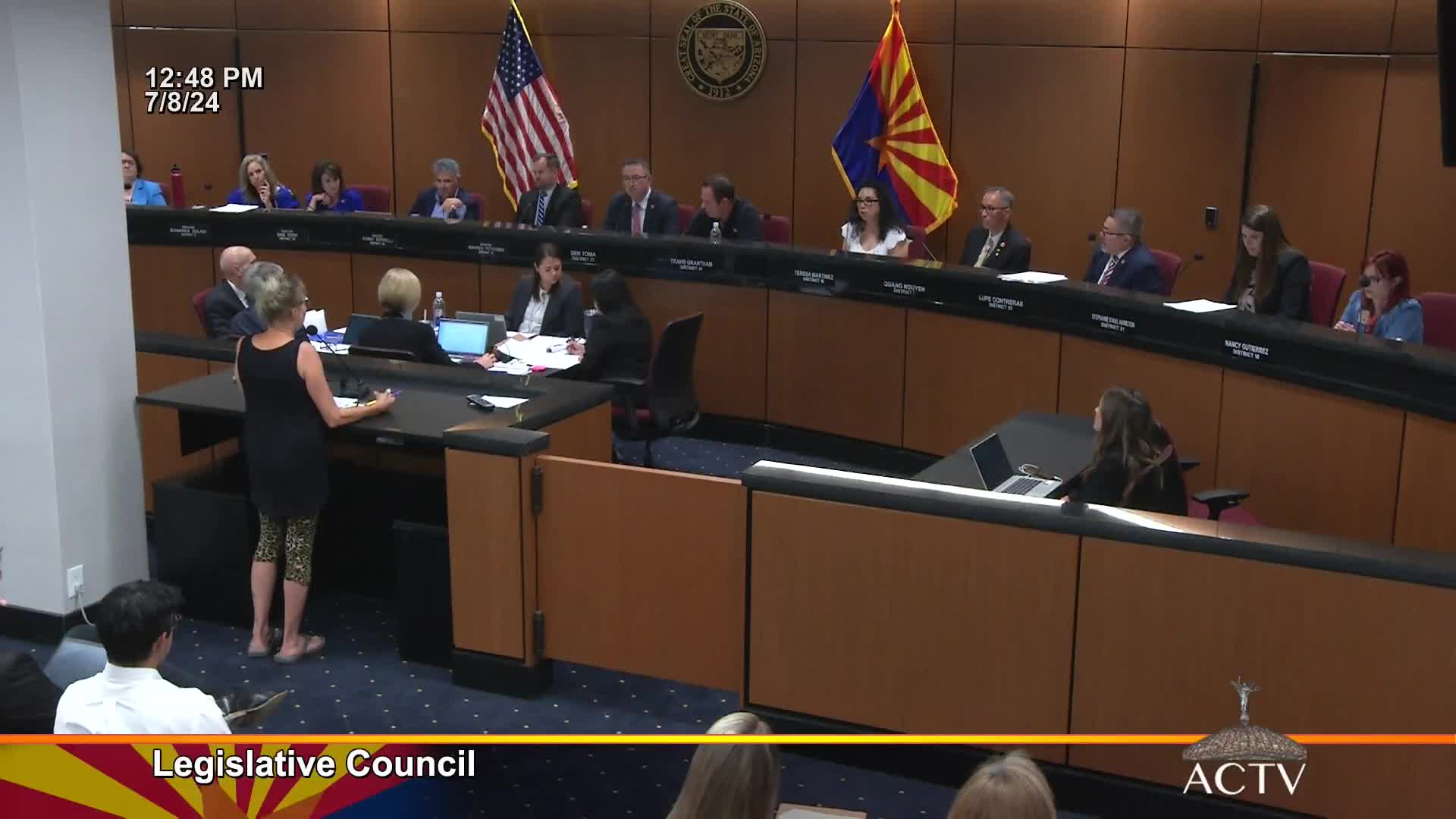Heated debate over abortion language sparks legislative clash
July 08, 2024 | Legislative Council, Interim Committees, Committees, Legislative, Arizona

This article was created by AI summarizing key points discussed. AI makes mistakes, so for full details and context, please refer to the video of the full meeting. Please report any errors so we can fix them. Report an error »

In a recent government meeting, significant discussions centered around the language used in proposed legislation regarding reproductive health. A key point of contention arose over the terminology used to describe a fetus, with one member proposing to replace \"unborn human being\" with \"fetus\" in the draft analysis. This amendment sparked a debate about the implications of language in legislative texts, particularly in the context of scientific accuracy and representation.
Members expressed concerns about the terminology used to define individuals involved in reproductive health decisions. One representative highlighted that the current language does not adequately define what constitutes a woman, referring to pregnant individuals generically. This lack of clarity raised alarms about the potential for minors to seek medical advice without parental knowledge, emphasizing the need for precise definitions in health care contexts.
The meeting also touched on the broader implications of language in legislation, with representatives advocating for the use of scientifically accurate terms to avoid bias. The discussion culminated in a vote, resulting in the adoption of the proposed draft with eight votes in favor and six against.
As the meeting concluded, the focus shifted to the \"Make Elections Fair Arizona Act,\" indicating ongoing legislative efforts to address electoral integrity and fairness in the state. The discussions reflect a growing emphasis on the importance of language in shaping policy and the potential consequences of legislative definitions on public health and rights.
Members expressed concerns about the terminology used to define individuals involved in reproductive health decisions. One representative highlighted that the current language does not adequately define what constitutes a woman, referring to pregnant individuals generically. This lack of clarity raised alarms about the potential for minors to seek medical advice without parental knowledge, emphasizing the need for precise definitions in health care contexts.
The meeting also touched on the broader implications of language in legislation, with representatives advocating for the use of scientifically accurate terms to avoid bias. The discussion culminated in a vote, resulting in the adoption of the proposed draft with eight votes in favor and six against.
As the meeting concluded, the focus shifted to the \"Make Elections Fair Arizona Act,\" indicating ongoing legislative efforts to address electoral integrity and fairness in the state. The discussions reflect a growing emphasis on the importance of language in shaping policy and the potential consequences of legislative definitions on public health and rights.
View full meeting
This article is based on a recent meeting—watch the full video and explore the complete transcript for deeper insights into the discussion.
View full meeting
